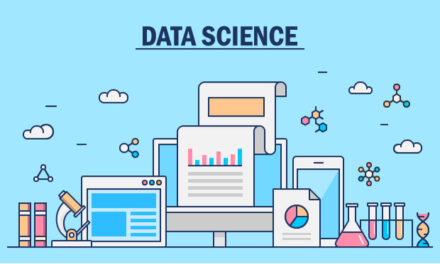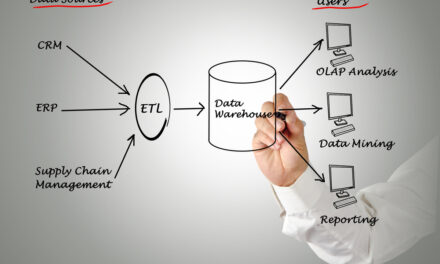After I completed my master’s, I received a few messages from folks who wanted my opinion on how this postgraduate degree has helped me in my career and work. Instead of repeating myself, I thought I should pen down my thoughts and really expound on what I received from this education.
Before I begin, I would like to let you know that I’m a manager in data engineering at my current workplace, and I do applied data science for sports products on a daily basis. This is important because my opinion is going to be biased based on my background and experience.
In short, this MSBA has benefited me tremendously, but it’s not for everyone. On a personal rating, I give it an 8 out of 10, but if I’m looking from an angle without my background and experience, I would rate it a 6 out of 10. Let me explain why.
Also, I want to highlight that the school updates its curriculum regularly, so whatever that I experienced is personal, and may not reflect on your experience if you do intend to take this degree in the future.
This course doesn’t teach you machine learning and AI comprehensively.
Every time I see the word “analytics”, I tend to think data science, machine learning, and AI. Sure, we do statistical analysis and modeling within the course, but we only have one day of lecture on modern AI.
There is only so much material to cover on AI in one day. It is your usual overview of supervised and unsupervised learning and the methods that fall under these categories such as logistic regression and neural networks. We did some classification and analysis work on weka (https://www.cs.waikato.ac.nz/~ml/weka/, a machine learning software in Java), but typically we model using R or Python instead of using a pre-built tool for everyday work.
So if you’re into machine learning and AI specifically, I personally don’t feel this is for you.
This course doesn’t give you time to digest.
A lot of precious content, but too little time to digest. Basically, you’re thrown into a whirlpool of information and practice, but it truly takes some practice and diligence to ace the topics.
It is akin to how I was teaching in a data analytics bootcamp at the University of Miami. My ex-students complained that it was a brain dump without too much understanding, and now I’m at the recipient end of it.
Why do I say that? The MSBA is only for a year. For every module, you have pre-module assignments where you would’ve to do some homework, then the lecture is for a couple of days, and then post-assignment. That summarizes the entire module!
Even though a module generally takes 2-3 months, this format makes it very tight for learning. For some courses, there is very definite continuity from the previous modules. However, every topic has a mountain of information and practice to glean from.
Now that I’m done with my Masters, I will be taking time to review my course materials and glean more in my personal time.
If you want to take this course, I highly recommend getting some foundations in coding in R and/or Python. My learning curve definitely shrunk in half since I have been programming for the last 10 years (from this time of writing).
Gives a good overview for making business decisions through statistical and mathematical modeling, and visualization.
I cannot understate this part of the course and how it would help you if you want to enter the world of business intelligence (BI). Tableau is the main tool for BI visualizations in many companies.
Decision-making through mathematical modeling is key. It tells us how to make accurate assessments through calculations, and it is widely used in all sorts of applications such as the firmware in routers, to supply-chain problems in the logistics world.
In CBS Sports, I use this to create fantasy lineup optimization for CBS Fantasy.
The statistical and mathematical modeling modules give a good foundation for data science.
I don’t mind a couple more of these modules, to be honest, and if NYU stretched this program into 2 years. Data science is not just about using a couple of models to predict. It has to deal with the whys of how everything works, and these modules help with that.
Causal modeling is also a highlight of NYU MSBA, and it is the unique selling point of this Masters.
The prestige of the NYU name
People do know NYU, and for some reason, folks have been contacting me on LinkedIn for job opportunities and stuff.
If you’re looking for a job, then the NYU Stern name will help tremendously to get you to your promised land.
Why would it be an average rating for some people?
Some of the tools that we use aren’t on par with what is being used on the market. Weka is one example, but Monte Carlo simulation is done using Oracle’s Crystal Ball with Excel.
I have never built a machine learning model on Excel. I go straight to my Jupyter notebook, deploy Sagemaker endpoints or build it locally for our NBA Monte Carlo simulation.
Unless you know how to translate some of the materials into common tools that companies would use, it might be a turn off. However, I don’t have that disadvantage, and I could focus on learning the concepts and understanding instead of figuring it out on Excel.
Not everyone has a similar background like mine, and it can be a little off-putting if you want to be at the bleeding edge of technology.
However, I truly benefited from the experience, and I’m able to translate what I learned into my work. If you’re in the same program, hopefully it works for you too.





Thank you for sharing your experience. I would like to know the job prospects after completing this degree and which companies will hire me if I intend to stay in New York.
Business or data analyst jobs particularly. It’s also a good step towards becoming a data scientist.